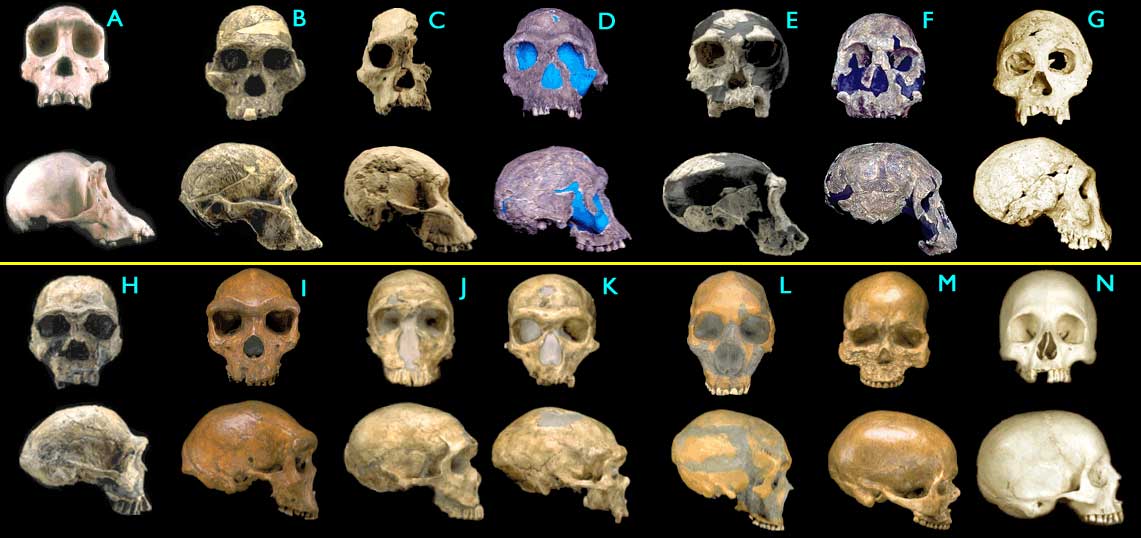Andy D said:
See I dont look to the church, I look to the Holy Spirit who can lead each one of us and also to my brothers and sisters in Christ. Our leaders are men just like us so whilst we look to them with respect, it doesnt make them infallible.
Yes, very good point

. My point though is that if the Catholic Church does not find biblical problems with evolution and/or an old Earth, then this is pretty strong evidence for me that a young earth is not the only valid interpretation of the Bible. No, the Church is not infallible; we still have sin in this world. But if two groups, who we must assume are led by the Holy Spirit, have contradicting ideas about creation, then I think we can rightly assume that both are valid from a biblical point of view.
Andy D said:
Just that today we have much more scientific evidence available.
Which is where I raise my second point. The Church has been divided over the old earth issue. We cannot really rely fully on church teachings to give us the answers (whether YEC, OEC, or TE). Therefore, I do not see a problem with looking to science to give us the answer. Evolution is a concept that, whether one likes it or not, has much support from the scientific community, based on around 200 years of research. The Big Bang theory is by far the most widely accepted view of the universe's creation.
So why are many Christians opposed to these theories?
Unfortunately, several researchers have been propogating materialistic pseudo-science, claiming that science is at antithesis to God - a claim unfortunately many people, including Christians, have believed. Richard Dawkins comes to mind as one such researcher, a publisher of numerous books stating that evolution 'disproves God'. This is far from the truth. To leave God (or any metaphysical force) out of the equation is by definition not science, as it shapes its hypotheses around atheistic conclusions. Likewise, the multiverse theory, which claims that the physical laws of this universe are affected (and came to be the way they are) by other universes, influencing our own. This is not science, as we can by no means detect other universes - we do not live in another universe. This is why the Big Bang theory is commonly accepted. Really no Christian should be upset about the Big Bang theory, as the concept itself dictates that the universe has a definite beginning. If the universe has a beginning, by logic it must have been created, as something cannot come from nothing. The Big Bang does not deny God; if anything it proves He is there!

"Only a rookie who knows nothing about science would say science takes away from faith. If you really study science, it will bring you closer to God. I stand in awe of God because of what he has done through his creation."
[size=-1]- Dr. James Tour
Professor of Chemistry,
Rice University, Texas[/size]
If science does not disprove God, and the Bible interpretation is unclear, then I think we can quite rightly accept mainstream scientific opinion about the age of the Earth - and this includes not propogating a young-earth as the only possible interpretation of Scripture (and henceforth, science). I do not have a problem with YEC. If God wanted to create the Earth in 6 days, 6000 years ago, then He would have, and certainly could have done it. I don't even really have a problem with Creation science, per sé - it is quite scientific to form a hypothesis about the Earth and look for evidence to support it. The problems start when the arguments for a young-earth are not convincing, have unexplained problems, or, worse still, based on long-disproven evidence; yet the hypothesis is touted as infallible scientific fact - much to amusement of other scientists - and any other hypotheses or existing theories are passed off as näive, atheistic nonsense. This cannot have any advantage to Christianity at all; as St. Augustine remarked:
"Usually, even a non-Christian knows something about the earth, the heavens, and the other elements of this world, about the motion and orbit of the stars and even their size and relative positions, about the predictable eclipses of the sun and moon, the cycles of the years and the seasons, about the kinds of animals, shrubs, stones, and so forth, and this knowledge he holds to as being certain from reason and experience..."
"If they find a Christian mistaken in a field in which they themselves know well and hear him maintaining his foolish opinions about our books, how are they going to believe those books in matters concerning the resurrection of the dead, the hope of eternal life, and the kingdom of heaven, when they think their pages are full of falsehoods on facts which they themselves have learnt from experience and the light of reason?"
I am not saying that Creation science is inheritantly wrong, or that it is worthless - yes it is true, some atheists have been converted through YEC, although it is no secret the opposite is certainly true also. But we should be wary not to effectively place our own scientific views, whatever they may be, against the 'world-view', especially when there is
no reason that the two should be mutally exclusive. After-all, we do not have a definite view of which interpretation of Scripture is more valid, otherwise we would not still be arguing about it after around 2000 years!

Peace,
Alchemist
P.S. Got a verse, seeing this
is a Bible-verse thread

:
"Lift your eyes and look to the heavens: Who created all these? He who brings out the starry host one by one, and calls them each by name. Because of his great power and mighty strength, not one of them is missing."
- Isaiah 40:26




